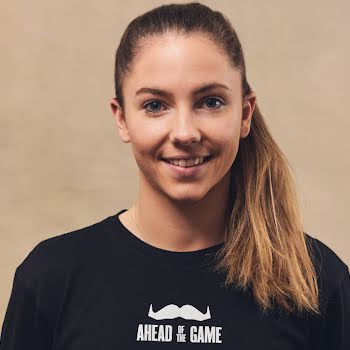By Shayna Sappington
05th Jun 2023
05th Jun 2023
Sponsored By

Do you feel like your needs and desires are often ignored? Relationship coach Annie Lavin shares how we can set boundaries and effectively strengthen our relationships.
Why do you feel so strongly about boundaries in relationships?
Boundaries are essential for healthy relationships. They help to differentiate important aspects within relationships, such as:
- Self and others – Boundaries help individuals distinguish their own thoughts, feelings, and needs from those of their partner. This allows each person to maintain their own sense of identity and independence within the relationship.
- Acceptable and unacceptable behaviours – Boundaries help to define what behaviours are acceptable and unacceptable within the relationship. This can include things like how partners communicate with each other, their sexual preferences, and how much time they spend together.
- Responsibility and accountability – Boundaries help individuals take responsibility for their own actions and hold others accountable for theirs. This can include setting limits on what they are willing to tolerate and enforcing consequences when boundaries are violated.
How can we identify if our boundaries need work?
1. You feel like your needs and desires are often ignored or dismissed by others, especially in your close relationships.
2. You find it difficult to say “no” when someone asks you to do something, even if you don’t want to or don’t have the time or energy.
3. You frequently feel overwhelmed, stressed, or anxious in your relationships.
4. You often feel like you’re being taken advantage of or exploited by others, especially in your close relationships.
5. You tend to overcommit or overextend yourself, even if it means sacrificing your own needs or well-being.
6. You find it difficult to ask for help or support when you need it.
7. You frequently find yourself in relationships that are emotionally or physically abusive, and you struggle to leave or set boundaries.

How important are our relationships to our overall well-being?
Research consistently shows that social connections and supportive relationships are critical to our mental, emotional, and physical health. Positive relationships provide us with a sense of belonging, purpose, and meaning, which are all essential for our overall well-being. They can also provide us with emotional support, encouragement, and motivation during challenging times, which can help us to cope with stress and adversity more effectively.
Our relationships play a crucial role in our overall well-being. Positive relationships can provide us with a range of benefits, while negative relationships or social isolation can have a significant negative impact on our health and well-being. It is important to invest in healthy relationships and work to build and maintain positive social connections throughout our lives.
What simple steps can we take to improve our relationships?
1. Communicate effectively – Effective communication is a key component of healthy relationships. Be honest, clear, and respectful when communicating with others, and be willing to listen and consider their perspectives as well.
2. Practice empathy – Try to understand and empathise with the feelings and experiences of others, even if you don’t agree with them. This can help to build trust and strengthen your relationships.
3. Set healthy boundaries – As we discussed earlier, setting healthy boundaries is crucial for maintaining healthy relationships. Be clear about your own needs and limits, and be willing to communicate them respectfully and assertively.
4. Practice forgiveness – Holding grudges and resentment can harm relationships over time. Practising forgiveness, both for yourself and others, can help to repair damaged relationships and build stronger connections.

5. Spend quality time together – Make an effort to spend time with loved ones and engage in activities that you both enjoy. This can help to strengthen your bond and build positive memories together.
6. Seek support when needed – If you’re struggling in your relationships, seek support from a therapist, counsellor, coach, or trusted friend or family member. They can provide you with guidance and support as you work to improve your relationships.
Remember that building healthy relationships takes time and effort, but the benefits are well worth it. By practising effective communication, empathy, boundary-setting, forgiveness, and spending quality time together, you can work towards building stronger, more fulfilling relationships in your life.
What tools can we use to improve our boundaries?
- Self-awareness – Developing self-awareness is crucial for setting and maintaining healthy boundaries. This involves getting in touch with your own needs, values, and limits, and being willing to communicate them assertively to others.
- Mindfulness – Mindfulness practices can help you to stay present and aware of your thoughts, feelings, and physical sensations in the moment. This can help you to identify when your boundaries are being crossed and take appropriate action. Look out for an active mindfulness group in your local area if you find doing this alone difficult.
- Role-playing – Role-playing can be a helpful tool for practising assertive communication and boundary-setting in a safe and supportive environment. Lots of my clients love this aspect of our work. You can practice with a friend, family member, or therapist, and work on expressing your needs and limits assertively and respectfully.
- Boundary-setting scripts – Some of my clients struggle with the language around boundary-setting. I often work with them to develop scripts or phrases they can use in different situations to communicate their boundaries more effectively.
- Journaling – Journaling can be a helpful tool for reflecting on your experiences and identifying patterns in your behaviour and relationships. Lots of my clients have regular journaling practices to increase their awareness.
- Therapy – Working with a therapist, counsellor or coach can be a helpful way to explore your boundaries, identify areas where they may need improvement, and develop strategies for setting and maintaining healthy boundaries in your relationships.

The IMAGE Wellness Project is powered by Meagher’s Pharmacy in association with Gym+Coffee, Aveeno and Cleanmarine MenoMin.























